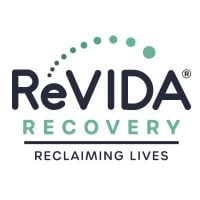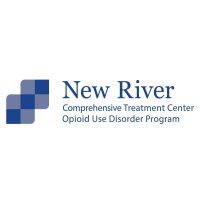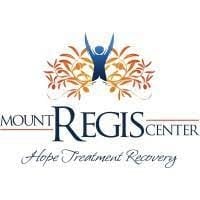Pinnacle Treatment Centers - Pulaski Medical
Drug Rehab Center in Pulaski, Virginia
Pinnacle Treatment Centers - Pulaski Medical, located in Pulaski, Virginia, is an accredited treatment facility specializing in treating Alcoholism, Substance Abuse, Opioid Addiction, Dual Diagnosis, and Drug Addiction. They offer detox, outpatient, aftercare support, and partial-hospitalization programs to provide comprehensive and evidence-based treatment services.
About
Pinnacle Treatment Centers - Pulaski Medical is a private detox clinic located in Pulaski, VA, specializing in the treatment of opioid addiction. With a focus on providing comprehensive and personalized care, Pinnacle Treatment Centers - Pulaski Medical aims to help individuals overcome substance abuse and achieve lasting recovery.
• Accredited by CARF, NAATP, SAMHSA, and holds a State License, ensuring high standards of care
• Specializes in treating alcoholism, substance abuse, opioid addiction, dual diagnosis, and drug addiction
• Offers a range of levels of care, including detox, outpatient, aftercare support, and partial-hospitalization
• Provides a comprehensive range of services to address addiction and substance abuse
Pinnacle Treatment Centers - Pulaski Medical maintains high standards of quality and ensures evidence-based treatment practices through its accreditations and certifications. The facility holds certifications from CARF (Commission on Accreditation of Rehabilitation Facilities), NAATP (National Association of Addiction Treatment Providers), SAMHSA (Substance Abuse and Mental Health Services Administration), and the State License.
The facility treats a variety of addictions and issues, including alcoholism, substance abuse, opioid addiction, dual diagnosis, and drug addiction. Pinnacle Treatment Centers - Pulaski Medical offers a range of treatment options, such as detoxification services to safely manage withdrawal symptoms, outpatient treatment programs, aftercare support, and partial-hospitalization programs for individuals requiring more intensive care.
Genders
Ages
Modality
Additional
Accreditations
State License
SAMHSA
NAATP

CARF
The Commission on Accreditation of Rehabilitation Facilities (CARF) is a non-profit organization that specifically accredits rehab organizations. Founded in 1966, CARF's, mission is to help service providers like rehab facilities maintain high standards of care.
Conditions and Issues Treated
Recovering from substance abuse is an essential part of a healthy life for many people. It’s a long and challenging process, but it can be worth it in the end if you manage to get through all parts. Detoxifying your body, rehabilitation after that time passes or when needed (depending on what type), and then recovery while also receiving therapy support throughout this entire process.
A standard route to starting recovering from substance abuse and addiction is through a detoxification center. There you can completely heal your body and mind and continue on the path of recovery without feeling any of the lingering effects of substances.
Within the past decade, opioid addiction has become a nationwide epidemic. The United States hosts one of the world’s highest rates of opioid use or abuse and has one of the highest rates of opioid-related deaths. In the United States, opioid drugs are classified as Schedule II-IV controlled substances due to their highly addictive properties and potential for abuse. These include morphine, opium, heroin, oxycodone, hydrocodone, methadone, and fentanyl. Physicians usually prescribe opioids to help control pain.
Over time, opioid users develop a tolerance for the drugs, which makes it difficult, if not impossible, to function without them. In turn, opioid users often resort to illicit means of obtaining the drugs. These means can include drug dealers, friends, and family members who do not have legitimate prescriptions for the drugs. Opioid addiction can quickly lead to heroin use, especially those seeking more intense highs than prescription opioids offer. Due to the high risk of overdose, heroin users are at a much higher risk for illness and death.
Levels of Care Offered
This center offers a variety of custom treatment tailored to individual recovery. Currently available are Aftercare Support, Detox, Outpatient, with additional therapies available as listed below.
Detoxification is a critical first step in treatment for drug addiction. Drug detoxification helps the individual withdraw from the drug by providing a controlled environment where symptoms can be managed through medication and close observation. Detoxification is an inflection point where the individual can get on a recovery track, but it’s also one of the most dangerous points in the recovery process.
In addition to going through physical withdrawal from certain drugs, a detox program also provides the individual with drug testing to monitor their progress. This way, if the individual is not ready for sobriety (such as if they relapse), the treatment professionals can catch it early on and use that opportunity to help re-orient the individual towards recovery.
An outpatient treatment program is set up to help with alcohol or drug addiction or a co-occurring disorder. The treatment must attend the treatment facility for their therapy and other programs but return home each night. The frequency of mandatory attendance decreases after much of the treatment program is complete. The treatment programs are monitored by the treatment facility and case managers who work for a judge or judge’s office. A treatment program may be performed out of a treatment facility, treatment clinic, or treatment center.
The benefits of outpatient treatment programs are many. One of the most beneficial treatment programs is that it allows treatment for clients who cannot afford or may not be able to attend treatment at a treatment facility, treatment center, or treatment clinic full-time. Another benefit of treatment programs is that they reduce crime rates because treatment allows people to treat their addiction.
Recovering drug addicts need aftercare support when they leave treatment. The support can include guidance through 12-step programs, outpatient rehabilitation programs, and support groups. Aftercare supports the individual in their desire to maintain sobriety by reducing relapse risk with positive choices.
The success of drug treatment does not end when the addict leaves the rehabilitation center. There is no such thing as a “one and done” type of rehabilitation process. Recovery is a lifelong journey that begins with treatment and continues by the addict committing to outside support groups or drug rehab programs.
When choosing a program, it is crucial to choose one that will provide long-term aftercare support. This ensures that you have the tools you need to sustain your recovery.
Therapies & Programs
Individualized Treatment is essential because it gives addicts the ability to participate in a program that meets their unique needs. An addict should work with professionals who understand what they’re going through, especially if the addict is actively using. Finding the right treatment program for an addict is difficult, but it’s even harder without communicating with those who have experience treating your specific situation.
Couples therapy is a treatment approach where the patients and their partners are engaged together. When a person becomes a victim of substance abuse, it affects the patient and his people, particularly his partner. Their relationship can become strained due to lack of communication, financial issues, loss of trust, lack of intimacy, and physical abuse in more severe cases. Couples therapy addresses these issues and tries to rebuild the trust between the partners. The partner’s involvement in the process will result in greater chances of treatment success and sustained recovery.
The therapies typically involve all family members, potentially including siblings, children, and parents who play a role in their daily lives. These sessions can be essential because they address past issues that may have affected an addict or alcoholic’s recovery process. They provide support during this time when it is needed most!
A family therapy session, often called a family meeting or intervention, is a necessary process that helps loved ones of addicts see their situation in a new light. It’s also one of the most challenging things families will ever have to do when they’re facing a loved one battling addiction or alcoholism.
Group therapy sessions provide recovering addicts with a chance to cope with everyday situations that many face. Group therapy sessions are held in rehab facilities, clinics, churches or community centers that offer drug addiction treatment.
People who attend these groups are encouraged to voice their feelings and support other addicts in recovery. This helps group members strengthen their own recovery program while cheering on others who are struggling with sobriety.
Trauma therapy allows them to work through past trauma to have peace of mind and begin down the road of sobriety. The therapist will work with the individual to help them understand their past and present relationships. Patients may often believe that something is inherently wrong with them or they are unworthy of love. The therapist aims to correct these negative feelings and behaviors by helping the person realize that their actions do not reflect who they truly are.
Cognitive Behavioral Therapy (CBT) is a highly effective treatment option based on the idea that how we feel, think and act all interact together. Our thoughts determine our feelings and behaviors; our feelings affect our thoughts, and our behaviors change our thoughts and feelings. CBT helps people explore their thoughts for problems (or false beliefs) that influence their mood and actions. By examining their thoughts and beliefs, people can recognize distorted or irrational and modify them to more realistic, positive ones. CBT is very goal-oriented, which means that the therapist and patient work together on a specific problem while learning to become more adept at solving future problems.
CBT works well with a broad range of people, including those with depression, anxiety disorders, eating disorders, and problems with anger. In addition to helping a client focus on thoughts that can be changed, CBT also allows them to take an active role in their treatment. This is called a collaborative approach because both patient and therapist work together to produce the best possible results.
CBT is based on cognitive learning theory, which says that our behavior is a learned response to our environment. Cognitive refers to thoughts and beliefs, while behavioral relates to actions or deeds. CBT helps people learn ways of behaving to improve their quality of life by focusing on specific problems or goals they want to achieve. Sometimes, CBT is used alone; other times, it is combined with medications or brief counseling techniques such as solution-focused and motivational interviewing to achieve optimal results for the patient.
Rational Emotional Behavior Therapy (REBT) was developed by Dr. Albert Ellis in 1955. The therapy is based on the premise that our beliefs lead to and maintain our emotions and behaviors. It does not incorporate the use of medications or supplements. Instead, REBT focuses on helping people understand, respect, and accept their feelings without judgment.
Life skills training is beneficial for addicts in recovery because it helps them learn how to take care of themselves and improve their quality of life, which can promote feelings of purpose and motivation.
This works by teaching individuals life-enhancing skills that support positive living, including:
- Healthy lifestyle habits
- Skills to effectively manage stress
- Effective communication skills to help them get their needs met without turning to drugs or alcohol
- Money management and budgeting skills so they can continue to take care of themselves after treatment ends.
Payment Options Accepted
For specific insurance or payment methods please contact us.
Is your insurance accepted?
Ask an expert, call (888) 674-0062
Additional Details
Specifics, location, and helpful extra information.
Pulaski, Virginia 24301 Phone Number(540) 980-1125 Meta DetailsUpdated April 15, 2024
Staff Verified
Patient Reviews
There are no reviews yet. Be the first one to write one.
Pulaski, Virginia Addiction Information
The state of Virginia has been struggling with substance use and abuse like the rest of the United States. A little over 10% of the entire Virginia population uses drugs and almost 5% abuse alcohol every given year. This has led to almost 6.5% of all deaths in Virginia being somehow related to alcohol and/or drugs.
Treatment in Nearby Cities
- Hopewell, VA (192.3 mi.)
- Ashburn, VA (225.5 mi.)
- Dumfries, VA (215.1 mi.)
- Arlington, VA (236.2 mi.)
- Chesterfield, VA (180.8 mi.)
Centers near Pinnacle Treatment Centers - Pulaski Medical
The facility name, logo and brand are the property and registered trademarks of Pinnacle Treatment Centers - Pulaski Medical, and are being used for identification and informational purposes only. Use of these names, logos and brands shall not imply endorsement. RehabNow.org is not affiliated with or sponsored by Pinnacle Treatment Centers - Pulaski Medical.








